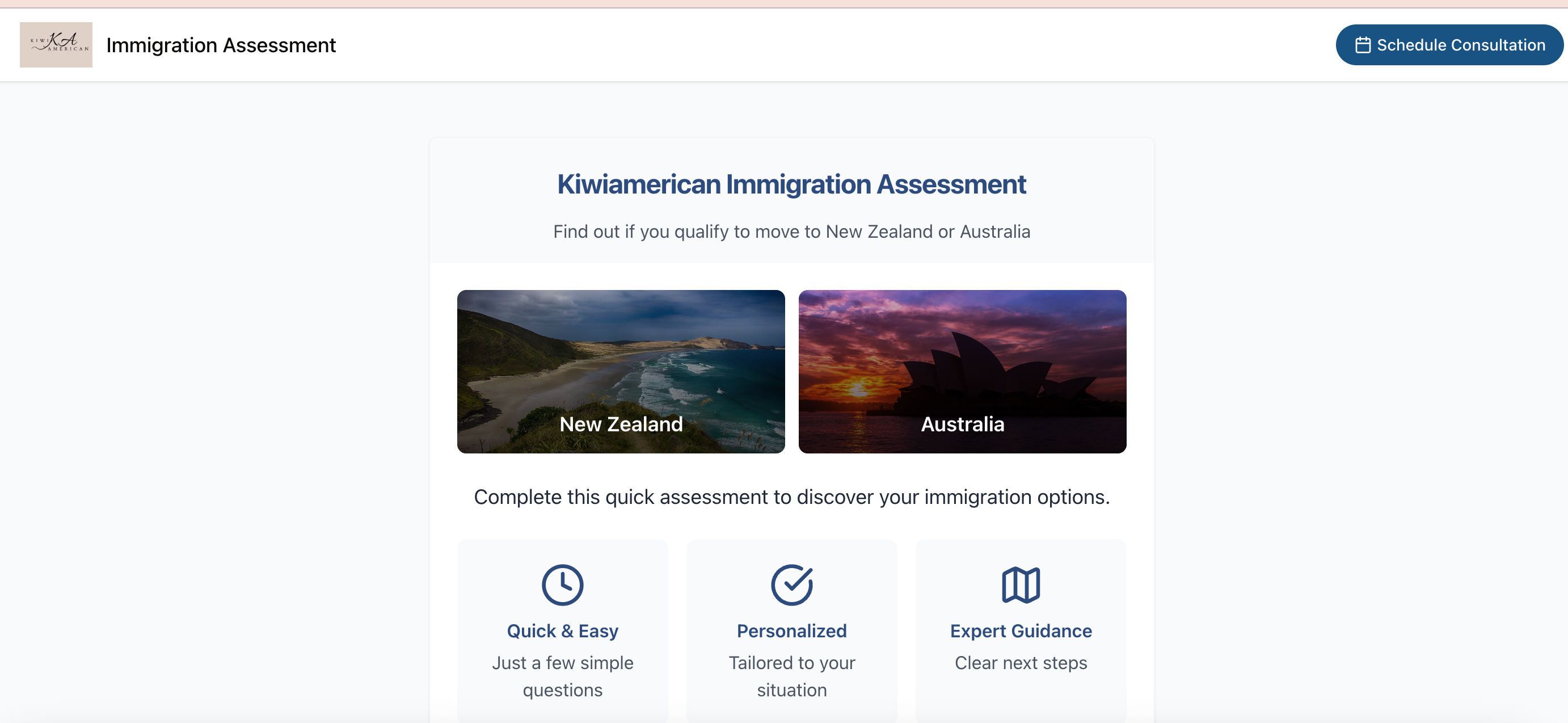Mastering Living Abroad Taxes: US Citizen Edition 2024
Apr 23, 2024
Mastering Living Abroad Taxes: US Citizen Edition 2024
I cannot tell you how many people I talked to who have moved abroad and did not realize that they still had to submit US taxes every year! The United States is one of only three countries that require you to submit taxes regardless of where you live or work. Now, there are many treaties in place that allow you not to get double taxed, BUT you still have to SUBMIT your US taxes every year.
It is hard to find a tax professional who knows the rules around the US tax system and the country you are living in. I have had BrightTax do my taxes for the last few years and they have been the best accountants I have found. They really understand the laws in both countries and many of my clients use them as well.
As a US citizen living abroad, you must address the unfortunate challenge of paying taxes to two jurisdictions. This article is your practical guide to fulfilling your US tax duties, understanding key forms like the 1040 or 1116 , and utilizing tools such as the Foreign Earned Income Exclusion (FEIE) to navigate living abroad taxes for US citizens. With a focus on clarity and actionable insights, this guide will help you manage your tax obligations efficiently and avoid unforeseen penalties.
Key Takeaways
-
U.S. citizens residing abroad must file a U.S. income tax return reporting worldwide income, including wages, interest, dividends, rents, and royalties, and can face penalties for non-compliance.
-
Expatriates can utilize the Foreign Earned Income Exclusion (FEIE), Foreign Tax Credit (FTC), and tax treaties to avoid or mitigate double taxation of their foreign-earned income.
-
American expatriates must manage foreign financial accounts and assets by filing FBAR and FATCA documents and may face significant penalties for non-compliance with these reporting requirements.
Navigating US Tax Obligations While Living Overseas
Watch this video: https://youtu.be/a1NAzSYbSn4
Just like your fellow Americans back home, as a U.S citizen or resident living abroad, you have the same tax obligations. This includes the annual filing of a US income tax return using Form 1040. This isn’t limited to your earnings from employment; it includes income from self-employment, investments, and rental properties too.
Failing to comply with these obligations can result in penalties. However, the IRS offers other forms and schedules, such as Form 2555 and Form 1116, depending on your circumstances and eligibility for tax benefits. Despite the complex landscape of expat tax obligations, most US citizens living abroad usually do not owe any tax payment at the year’s end.
Understanding Your Filing Status and Requirements
Several factors determine your tax filing requirements as a US citizen living abroad. These include income, filing status, and age. For instance, in 2023, a single filer under 65 needed to file if their worldwide income exceeded $12,950. Hence, gaining a clear understanding of these thresholds is vital to steer clear of any potential pitfalls.
Additionally, taxpayers who file a US tax return or are claimed as dependent must have a Social Security Number (SSN) or Individual Taxpayer Identification Number (ITIN). Your marital status can influence your filing status and whether you have dependents. Hence, knowing your filing status and requirements can serve as a roadmap for your tax journey.
Watch this video: https://youtu.be/MTtUfF246Cw
Reporting Worldwide Income: The Basics
When reporting worldwide income, the IRS leaves no stone unturned. As a US citizen or resident alien, you’re required to report and pay taxes on all forms of income, whether it’s:
-
Wages
-
Interest
-
Dividends
-
Rents
-
Royalties
-
Pensions
These must be reported in the year they’re earned, regardless of when payment is received.
Remember, even though methods exist for allocating certain types of income like bonuses over multiple years for exclusion purposes, the fundamental principle - that all income earned abroad must be reported on a US tax return - still stands. This comprehensive approach ensures that you remain compliant with your tax obligations.
Utilizing Tax Benefits to Mitigate Double Taxation

Navigating the world of US taxes while living abroad can feel overwhelming, particularly regarding the risk of double taxation. This occurs when the US and the foreign country where you reside or earn income tax the same income. Thankfully, the IRS provides several safety nets in the form of tax benefits to help you balance on this tightrope. Some of these tax benefits include:
-
Foreign Earned Income Exclusion
-
Foreign Tax Credit
-
Tax Treaties
-
Totalization Agreements
These tax benefits can help you minimize or eliminate the risk of double taxation and ensure that you are not paying more in taxes than necessary.
These benefits include the Foreign Earned Income Exclusion and the Foreign Tax Credit. They act as mechanisms to offset potential double taxation, ensuring you’re not taxed twice on your hard-earned income. Additionally, you can leverage tax treaties to reduce your tax burden further. With these benefits, you can navigate the tax tightrope with confidence and security.
Harnessing the Foreign Earned Income Exclusion
The Foreign Earned Income Exclusion (FEIE) is a powerful tool for US citizens living abroad. You can use it to:
-
Exclude a portion of your foreign income from being taxed in the U.S.
-
Reduce your overall tax liability.
-
In the 2023 tax year, you can exclude up to $120,000 of foreign income.
If you’re a married couple working abroad, you’re in for an additional treat. Together, you can exclude up to $240,000 combined from U.S. taxation for the 2023 tax year by each claiming their allowance, provided you both meet the eligibility requirements. However, due to complexities and frequent errors in filing, it’s recommended to seek professional tax assistance to help meet the residence or physical presence requirements.
Claiming the Foreign Tax Credit Effectively
The Foreign Tax Credit (FTC) is another vital tool in your tax toolkit. It allows U.S. citizens to credit their taxes to a foreign government against their U.S. tax liability. The foreign tax credit can cover taxes paid to foreign countries and US possessions like Puerto Rico and the US Virgin Islands. It helps individuals avoid double taxation on income earned abroad.
To claim the FTC, you must file IRS Form 1116 and your federal income tax return. However, the FTC is a complex tax mechanism, and it’s advised to seek professional guidance to ensure you’re effectively claiming the credits and deductions for federal income taxes paid on foreign income, thereby relieving yourself from the burden of double taxation.
Leveraging Tax Treaties Between Countries
Tax treaties are agreements between countries designed to prevent double taxation. They ensure that taxpayers do not pay tax to both the US and treaty countries on the same income. These treaties can offer reduced rates or exemptions from taxes on certain types of income from treaty countries, providing another layer of relief from double taxation.
However, it’s important to remember that almost all tax treaties contain a Savings Clause. This clause prevents US citizens and residents from using the treaty to evade taxes on US-sourced income. Therefore, while tax treaties can be beneficial, they’re not a carte blanche for tax avoidance.
Managing Foreign Financial Accounts and Assets

In addition to navigating tax obligations, US citizens living abroad must also manage their foreign financial accounts and assets. This includes filing the Report of Foreign Bank and Financial Accounts (FBAR) and complying with the Foreign Account Tax Compliance Act (FATCA). While these may sound like an extra layer of complexity, they’re crucial for maintaining tax compliance and avoiding fines and penalties.
If you have joint foreign financial accounts, these must be reported on the FBAR if the total value of all foreign financial accounts exceeds $10,000 at any time during the calendar year. Furthermore, for FATCA reporting on Form 8938, joint account holders must separately report the account on their own form if they meet the threshold requirements. Therefore, managing foreign financial accounts and assets is a key aspect of your tax journey.
Decoding FBAR: Report of Foreign Bank and Financial Accounts
If the total value of your foreign financial accounts, including foreign retirement accounts, exceeds $10,000 at any point during the year, you must file an FBAR. This applies to various types of accounts, such as:
-
Mutual funds
-
Trusts
-
Brokerage accounts
-
Business accounts
The FBAR must be filed by April 15 annually, but there’s an automatic extension through October 15. However, failing to file an FBAR can lead to significant financial penalties, starting at $10,000 for non-willful violations and escalating beyond $100,000 for more serious violations. Hence, understanding and adhering to FBAR requirements is crucial to evade this financial pitfall.
FATCA Compliance: Navigating the Complexities
FATCA compliance is another crucial aspect of managing your foreign financial accounts and assets. As per FATCA, US citizens living abroad are required to report specified foreign financial assets to the IRS by filing Form 8938, known as ‘Statement of Specified Foreign Financial Assets’.
Individuals must file Form 8938 if they have an aggregate value of foreign financial assets exceeding certain thresholds. Non-compliance with FATCA reporting requirements, such as failure to file Form 8938, may result in a $10,000 fine for each instance of non-reporting. Navigating these intricacies is essential to maintain tax compliance and steer clear of unnecessary penalties.
State Taxes Considerations for Expatriates
While grappling with federal tax obligations, don’t forget about state taxes. Your state tax residency can be determined by factors such as:
-
your permanent home
-
vehicle registration
-
driver’s license
-
voter registration
-
financial ties within the state
Notably, some states, like New York and California, may tax expatriates on global income, while others, such as Alaska, Florida, and Texas, have no income tax at all. However, even if you’re not considered a state resident, you may still have to pay taxes to states where you have sourced income.
Due to the complexity of state tax rules for expatriates, seeking professional services like tax advisors to aid in the correct filing and compliance process is advisable.
Special Situations: Owning Foreign Companies and Property

Owning foreign companies and property can add another layer of complexity to your tax obligations. These special situations can trigger additional tax implications, such as Passive Foreign Investment Companies (PFICs) and Controlled Foreign Corporations (CFCs) reporting requirements.
For instance, the sale of a foreign personal residence can provide a gain that might be excluded up to a certain amount if eligibility criteria are met. Otherwise, any gain not excluded will be taxed at capital gains tax rates and may be reduced by the Foreign Tax Credit. Hence, comprehending the tax implications of these special situations is vital for effectively managing your foreign companies and property.
Tax Implications for Passive Foreign Investment Companies (PFICs)
If you own a Passive Foreign Investment Company (PFIC), you must navigate additional tax regulations to prevent tax evasion. A PFIC is a foreign company that meets specific income or asset criteria, and US shareholders need to report their investments annually by filing Form 8621 with the IRS.
There are three taxation methods for PFICs: excess distribution, market-to-market, and qualified electing fund (QEF). Each method has complexities and nuances, making this area of expatriate taxation particularly challenging to navigate without professional assistance.
Controlled Foreign Corporations (CFCs) and Their Impact on Your Taxes
Owning a Controlled Foreign Corporation (CFC) can also impact your taxes. A CFC is a foreign corporation where more than 50% of the voting power or total value of the stock is owned by US shareholders.
Shareholders with at least a 10% ownership stake in a CFC are subject to anti-deferral rules, which obligate them to report and potentially pay US tax on undistributed earnings. They’re required to file Form 5471 annually to disclose their proportion of income from the CFC, as well as their earnings and profits invested in US property. Therefore, understanding the tax implications of CFCs is essential for US shareholders.
Meeting Deadlines and Avoiding Penalties

Meeting tax deadlines is a crucial aspect of your tax journey. As a US citizen living abroad, you automatically receive an extension to June 15th for filing your federal tax returns. However, it’s important to remember that the tax owed is still due by April 15th.
If you require further time, you can request an additional extension using Form 4868 for filing until October 15th. However, if taxes are not paid by the original due date, interest begins to accrue from that date. Hence, meeting your tax deadlines is not just about compliance but also a strategy to avoid unnecessary financial burdens.
Critical Tax Deadlines for Expats in 2024
As we navigate through 2024, it’s important to mark your calendar with the critical tax deadlines. As an expat, you have an automatic extension until June 17, 2024, to file your tax returns without needing to request it. However, the tax owed is still due by April 15, 2024.
If you need more time, you can request an additional extension using Form 4868 for filing until October 15, 2024. However, regardless of these extensions, interest on owed taxes begins to accrue from April 15, 2024. Hence, keeping track of these deadlines is essential to maintain tax compliance and avoid unnecessary interest and penalties.
Consequences of Late or Non-filing
Late or non-filing can result in significant penalties. For instance, a Failure to File Penalty applies when taxes are not filed, starting at 5% of unpaid taxes for each month, to a maximum of 25%.
If taxes are not paid by April 15, 2024, interest begins to accrue regardless of the granted extensions. Additionally, if there is an underpayment of estimated taxes amounting to $1,000 or more for the year, an underpayment penalty applies despite timely payments. Paying estimated taxes accurately and on time is crucial to avoid such penalties.
Hence, understanding the repercussions of late or non-filing can motivate you to stay on top of your tax obligations.
Expert Help for American Expatriates
Navigating the world of expat taxes can be complex, but you don’t have to do it alone. Engaging with experienced tax professionals can help you avoid late filing and the associated fines and penalties.
Expert tax professionals can help you with:
-
Dealing with the IRS
-
Navigating foreign tax laws
-
Understanding your tax obligations
-
Ensuring you’re taking advantage of all available tax benefits
-
Guiding you through the filing process
Tara's Take: I have tried many companies out and have worked with BrightTax for a few years now, and it's my favourite. I own businesses in the USA and New Zealand, so I am not a simple tax case!
Why Consult a Tax Professional?
The US tax code undergoes frequent changes, making it challenging for individuals to stay updated without professional help. Moreover, commercial tax software may not be designed for expatriates, potentially leading to missed exclusions, deductions, and overpayment of taxes.
Hiring a tax professional can save you time and stress, allowing you to focus on other priorities rather than sorting out your taxes. A tax professional specializing in expatriate taxation can provide tailored advice for the specific US and foreign tax issues that US taxpayers face while living abroad.
H&R Block and Other Expat Tax Services
There are several tax services available to help ex-pats with their tax filings. H&R Block, for instance, offers a DIY online expat tax service or the expertise of experienced expat tax advisors. These services provide comprehensive support tailored to your unique overseas circumstances.
Another expat-friendly service is MyExpatTaxes. Designed to expedite the tax filing process for US expatriates, it aims to complete filings in under 30 minutes. The cost for MyExpatTaxes software is a competitive flat rate and includes award-winning customer support for the filing of federal returns and FBAR. Therefore, leveraging these services can make your tax journey smoother and more manageable.
Tara's Take: Both companies are good if you are a straight-forward W-2 type worker, but if you have investments, own businesses, or own real estate - I would recommend contacting BrightTax.
Summary
In summary, living abroad as a US citizen comes with unique tax obligations. However, with the right knowledge and tools, you can navigate through tax filings, benefit from tax exclusions and credits, manage foreign financial accounts and assets, and effectively handle ownership of foreign companies and property. Remember, you don’t have to navigate this journey alone – expert tax professionals and expat-friendly tax services are available to guide you every step of the way. So, embrace the journey, stay informed, and enjoy the unique life experiences that living abroad brings!
Frequently Asked Questions
Do U.S. citizens get taxes when living abroad?
Yes, U.S. citizens are still required to file income tax returns to the U.S. government, even when living abroad, and report all worldwide income, including income earned abroad. This is done using Form 1040.
Do U.S. citizens living abroad pay taxes twice?
Yes, U.S. citizens living abroad might be subject to double taxation because the U.S. taxes its citizens regardless of where they reside, leading to potential taxation by both their host country and the U.S.
What are the filing requirements for US citizens living abroad?
The filing requirements for US citizens living abroad depend on income, filing status, and age. They must file US income tax returns using Form 1040 and report worldwide income.
What are the tax implications of owning foreign companies and property?
Owning foreign companies and property can lead to additional tax implications, including reporting requirements for Passive Foreign Investment Companies (PFICs) and Controlled Foreign Corporations (CFCs). Awareness of these implications is essential to ensure compliance with tax regulations.
What are the tax deadlines for US expats in 2024?
As a US expat, you have until June 17, 2024, to file your tax returns, while the tax owed is still due by April 15, 2024. If needed, you can request an extension to file until October 15, 2024 using Form 4868.
SUBSCRIBE TO LEARN MORE
I send out weekly emails to update you on all that is happening in New Zealand!
We hate SPAM. We will never sell your information, for any reason.









